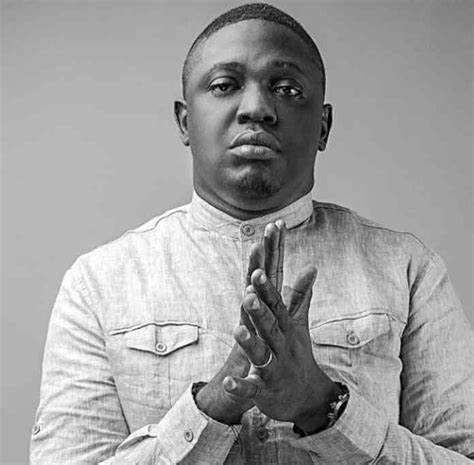Veteran Nigerian rapper Tobechukwu Ejiofor, better known by his stage name Illbliss, has shared a painful experience he faced during the early days of his music career in Lagos.
The award-winning lyricist, popularly known for his hit track Aiye Po Gan, revealed that a radio presenter once discouraged him from pursuing a music career in the city because he chose to rap in his native Igbo language.
He made the revelation during a recent appearance on the Real Shareholders podcast. In a heartfelt moment on the show, Illbliss recalled the harsh words he received from the presenter, who doubted the potential of Igbo rap music thriving in Lagos, Nigeria’s entertainment capital.
“You can’t make it here”
Illbliss, speaking on how tribalism affects the music industry, said he had just released a song titled Igbo Boy when the incident happened. According to him, the track celebrated Igbo culture and identity, with no intention to provoke or divide.
But the reaction he got from a well-known radio personality shocked him.
“When I came to Lagos, I made a record titled Igbo Boy,” Illbliss recounted. “Then, a radio presenter called me and said, ‘What are you trying to do? You can’t make it here. You’ve come here with an agenda. Omo-Igbo.’”
The rapper said the presenter didn’t stop there. He switched to Yoruba and continued, “When you can’t beat them, you join them. The music is good, but it won’t go far.”
Music, identity, and division
Illbliss said he was stunned by the presenter’s remarks. The moment left him deeply discouraged, not just as a musician but also as a Nigerian who believed in unity through art.
“The song wasn’t even offensive,” he explained. “It was about how Igbo people enjoy life and celebrate their culture. Just looking at that guy made me feel terrible. I realised that no matter how much we pretend to be one Nigeria, the tribal divisions are real and difficult to deal with.”
According to Illbliss, the experience served as a painful reminder of the cultural bias that often exists beneath the surface of the country’s entertainment industry.
The struggles of regional artists
The rapper’s story highlights a larger problem faced by many Nigerian artists who create music in indigenous languages other than Yoruba or Pidgin English, both widely spoken in Lagos and the South-West.
Many regional acts from the Southeast and other parts of the country often face silent resistance when they attempt to break into the mainstream music scene in Lagos. This, according to observers, is due to a deep-rooted preference for certain languages and styles.
Despite these challenges, Illbliss persevered. Today, he is one of Nigeria’s most respected rappers, known for his lyrical depth and commitment to promoting Igbo identity through his music.
Turning pain into purpose
Rather than allowing the experience to derail his dreams, Illbliss used it as fuel to push forward. He continued creating music in his style, staying true to his roots and defying the odds.
His story has inspired many upcoming artists from minority ethnic groups who now see him as a symbol of resistance against tribal bias in the industry.
Over the years, Illbliss has built a loyal fan base, not just among Igbo listeners, but across Nigeria and beyond. His success, despite the early rejection, stands as proof that talent and authenticity can break boundaries.
A call for inclusiveness
Illbliss’s experience has once again opened up conversations about the need for greater inclusion and respect for all Nigerian cultures within the entertainment space.
He believes music should unite, not divide.
“We must do better,” he said. “Our diversity should be our strength, not our weakness.”
As he continues to use his platform to speak out on social issues, Illbliss remains a powerful voice, not only in music but in the fight for cultural acceptance and national unity.
Read Also: I moved out of my parents’ house at age 16, Ayo Maff recounts
‘We lost lives, properties’, Timaya recounts Odi massacre ordeal



